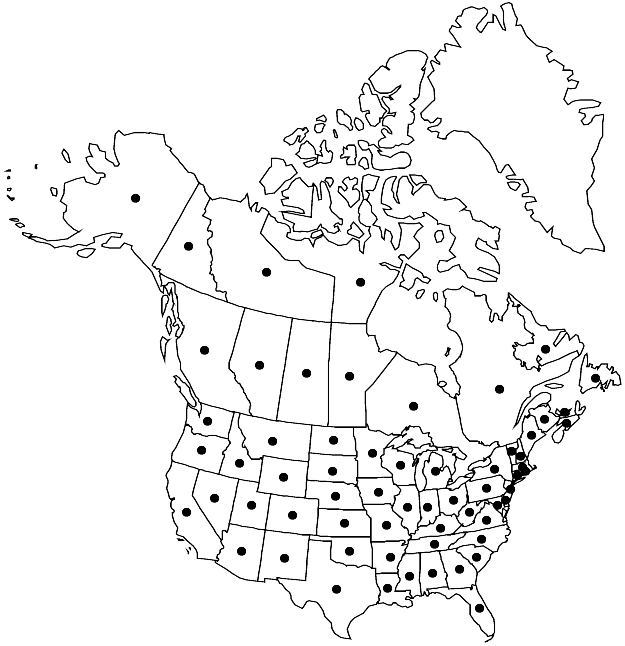familyAmblystegiaceae
genusHygroamblystegium
speciesHygroamblystegium varium
subspeciesHygroamblystegium varium subsp. varium
Difference between revisions of "Hygroamblystegium varium subsp. varium"
imported>Volume Importer |
imported>Volume Importer |
||
| Line 51: | Line 51: | ||
|publication year= | |publication year= | ||
|special status= | |special status= | ||
| − | |source xml=https:// | + | |source xml=https://bitbucket.org/aafc-mbb/fna-data-curation/src/2e0870ddd59836b60bcf96646a41e87ea5a5943a/coarse_grained_fna_xml/V28/V28_473.xml |
|genus=Hygroamblystegium | |genus=Hygroamblystegium | ||
|species=Hygroamblystegium varium | |species=Hygroamblystegium varium | ||
Latest revision as of 21:36, 5 November 2020
Plants small to moderately large. Stems to 10 cm, usually shorter; central strand usually present. Stem leaves 0.6–2 × 0.3–0.8 mm, lamina 1-stratose; margins entire or nearly so to serrate; costa to mid leaf, percurrent, or rarely short-excurrent, narrower than 100 µm at base; medial laminal cells 10–60 × 5–15 µm.
Distribution

North America, Central America, South America, Eurasia, s Africa, Pacific Islands (New Zealand), Antarctica.
Discussion
Varieties 2 (2 in the flora).
Subspecies varium occurs in a wide range of habitats and displays, accordingly, a wide range of morphological variability. Many features, like the presence of a central strand in the stem, leaf shape, and shape of the leaf apex, are plastic and depend on water availability.
Selected References
None.
Lower Taxa
None.
Key
| 1 | Costae percurrent; alar cells somewhat differentiated; leaves ovate-lanceolate to ovate-triangular; apices obtuse to acute; stem leaves not complanate | Hygroamblystegium varium var. varium |
| 1 | Costae ending before apex; alar cells not sharply differentiated; leaves broadly ovate; apices acuminate; stem leaves sometimes complanate | Hygroamblystegium varium var. humile |